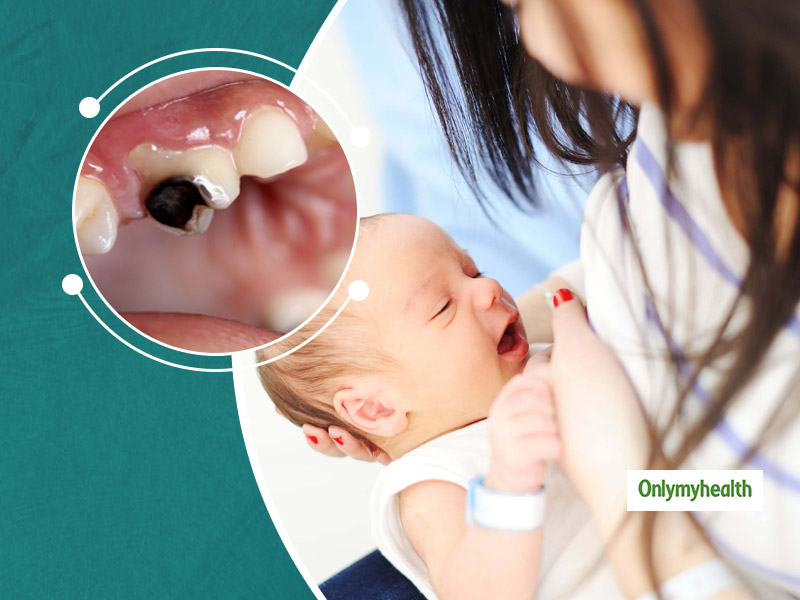
World Breastfeeding Week 2020: We all know that breast (mother's) milk is the best possible food for babies and infants! Moreover, do you know that breast milk can protect the infections and provide you nutrition? However, there is a slight controversy in the ‘goodness of breastfeeding’ (school of thought), and that is ‘does breastfeeding affect dental health or cause tooth decay’? Though it is often said that breastfeeding at night, will affect your dental health, a valid link has not been made between cavities and breastfeeding, causing “baby bottle mouth”, i.e. letting a kid sleep with a bottle at night.
Table of Content:-
Dental decay and baby's teeth
Tooth decay in baby's teeth was exceptional before bottles were used to feed kids and formulas were used as a substitute for mother’s milk were developed. 2 dentists, Dr Harold Torney and Dr Brian Palmer, in their study of tooth decay in children, have done extensive analysis on human skulls from five hundred to a thousand years old. These children were breastfed for an extended length of time. The two dentist’s research has led them to conclude that breastfeeding does not cause tooth decay.
How nighttime bottles cause dental decay?
One reason for nighttime bottles causing dental decay is that the liquid stays in contact with the teeth for an extended period due to pooling of the fluid inside the mouth. At the same time, the mother's milk doesn’t flow unless the baby is actively sucking. Moreover, behind the teeth, breast milk enters the baby’s mouth, and, if the baby is sucking, she or he is also swallowing. So the pooling of fluid did not happen.
Also Read: Maternal Immunity Is Very Important In COVID-19 Times, Know Tips From Doctor
What is the cause behind dental decay?
- Streptococcus mutans is the cause of dental decay streptococcus mutants. Do you know tha it is a bacteria present in plaque? These bacteria combine with food sugars to form an acid which causes decay. The bacteria Streptococcus mutans thrives in a combination of low amounts of saliva, sugars, and a low ph – level in the spit. Some people have increased levels of such bacteria, which puts them at a greater risk of dental decay. After a baby gets teeth, she or he can get these bacteria from saliva contact with the mother or some other caregiver or close relative.
- As per Dr Brian Palmer, “Human milk does not cause dental decay.” Until lately, the only researches that had been done were the effects of lactose on teeth, not the impact of breast milk as a whole. Breast milk contains milk sugar or lactose, which helps in causing tooth decay, but it also kills the decay-causing bacteria streptococcus mutants (as it includes lactoferrin). As per an article written in ‘Paediatric Dentistry’, do you know that human breast milk is not cariogenic?
Also Read: The Link Between Second Hand Smoking And Pregnancy
Conclusion
The conclusion of all this study seems to be that breastfeeding does not cause tooth decay. More reviews by Dr Torney has driven him to assume that under normal conditions, the immunoglobulins in breast milk will prevent the bacteria in the mouth that cause oxidation. But if there are little flaws in the enamel, then the protecting impact of breast milk is not sufficient to stop deterioration due to the mixed results of milk sugar and bacteria. According to this study, a kid who is only breastfed and no juice or solids and even supplementary bottle is given to him or her, will not have dental decay unless he/she is genetically inclined, e.g. has no or soft enamel.
Read more articles on Women’s Health
How we keep this article up to date:
We work with experts and keep a close eye on the latest in health and wellness. Whenever there is a new research or helpful information, we update our articles with accurate and useful advice.
Current Version